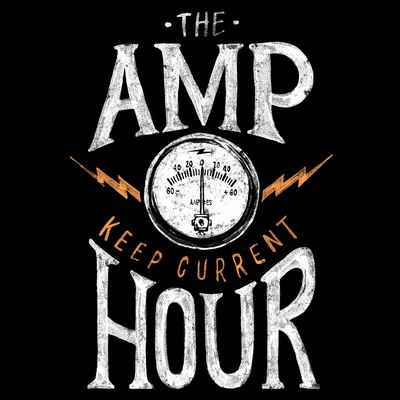Chris Gammell and Dave Jones' voices span the chasm of thousands of miles each and every week to speak to each other and industry experts about where the field of electronics is moving. Whether it be a late breaking story about a large semiconductor manufacturer, a new piece of must-have test equipment or just talking through recent issues with their circuit designs, Chris and Dave try to make electronics more accessible for the listeners. Most importantly, they try and make the field of electronics more fun. Guests range from advanced hobbyists working on exciting new projects up through C-level executives at a variety of relevant and innovative companies. Tune in to learn more about electronics and then join the conversation! Visit The Amp Hour website for our back catalog of 150+ episodes.
https://theamphour.com
#577 – Product Lifecycle Maintenance with Michael Corr
Welcome, Michael Corr of Duro!
- Chris met Michael when he was still working at a drone startup in SF
- Wendover Productions video about drone delivery
- After that he did consulting for a while and then started Duro
- PLM stands for “Product Lifecycle Maintenance”. If you have used a system that has change orders, it was likely a PLM.
- Chris first experienced this as paper tracking at a co-op in mid 2000’s
- Michael wants the process to be more like Pull Requests in software revision control.
- It can be tough dealing with binaries when doing revision control.
- There are other differences when comparing hardware vs software revision control.
- Separations of engineer from buyers means there’s less insight into supply chain woes
- Purchasing changes once you go to production
- Michael got started in R&D at SRI (Stanford Research Institute)
- He then moved to a high volume manufacturing job and was surprised at the differences. Notably the cost benefit of spending time costing down a BOM another 10 cents.
- Chris maintains that this is why hardware engineers are cheapsaktes
- Another problem in the industry is that tools aren’t interoperable, requiring meta layers like Duro.
- DFM and DFA are tough to do because there is a “wall” between manufacturing and engineering.
- Mechanical examples
- Michael says having quick iterationg is another similarlity with a more desirable process: Agile feedback loops
- What does a release process look like?
- Where is the source of truth? To avoid the manufacturer using the wrong attachment, Duro sends a link instead of an attachment
- Tying into ERP systems that purchasing deparments might use.
- Tying into MES software package integrations for companies doing their own manufacturing (like on the shop floor)
- The problems are everywhere: big companies might be able to move faster, but it’s by grinding with tools like spreadsheets
- When Michael moved to LA, he started mentoring at a hardware accelerator program
- When do people start using PLM systems? Chris thinks it should be “Two boards and an interconnect”
- Michael says it’s important to start using PLM ASAP, at the very least to start using a part numbering system. This was a similar opinion that Jan Rychter (PartsBox) had about management systems.
